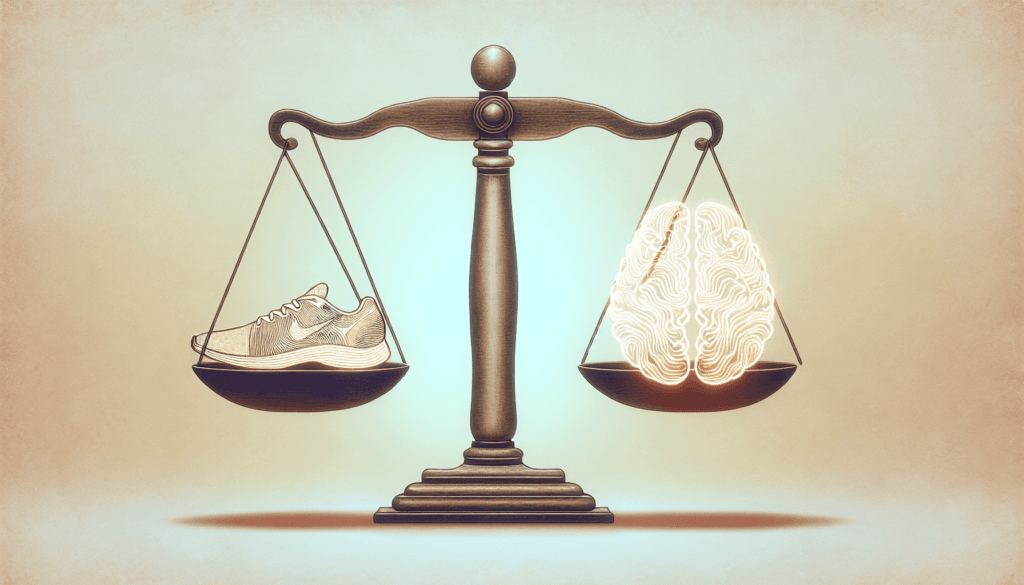The Meaning of Physical and Mental Fitness Explained. What does physical and mental fitness really mean? Your understanding of fitness may typically involve the image of someone running a marathon or lifting heavy weights at the gym, but there’s much more to it. Equally important is the wealth of mental endurance and emotional stability often overlooked. Let’s delve into what physical and mental fitness truly entails and how both can be balanced to achieve holistic well-being.
Table of Contents
Overview
Physical fitness and mental fitness are two distinct yet intertwined components of a healthy lifestyle. While physical fitness is often associated with muscle strength, cardiovascular health, and endurance, mental fitness encompasses emotional well-being, mental resiliency, and cognitive functions. Understanding both can provide a holistic approach to your overall health.
Thesis Statement
By examining the components and benefits of both physical and mental fitness, you can gain a comprehensive understanding of well-rounded well-being. This discussion will not only lay out the definitions but also provide practical examples and impact assessments, thereby encouraging you to integrate both aspects into your daily life.

This image is property of images.pexels.com.
Historical Context
The pursuit of physical fitness has ancient roots. Historical records indicate that physical training was an integral part of life in ancient Greece, Rome, and China. Physical fitness was not merely about aesthetics; it was vital for survival, military readiness, and even philosophical balance. For example, the Greeks idolized the match between physical prowess and mental acuity through events like the Olympics and philosophical schools.
The concept of mental fitness, on the other hand, is relatively modern but gains roots from the practices of mindfulness and meditation in ancient cultures like India and China. Mental fitness gained more recognition in the early 20th century with the growth of psychology as a scientific discipline, emphasizing the importance of mental well-being alongside physical health.
Current Trends
Today’s trends in fitness are not isolated to just physical or mental. There is a clear and evolving focus on holistic health, encompassing both physical activity and mental peace. Modern fitness apps and programs increasingly incorporate mindfulness exercises alongside physical training routines. Additionally, workplace wellness programs now offer both gym memberships and meditation sessions.
Key Concepts and Definitions
Physical Fitness
Physical fitness refers to the ability to perform daily tasks vigorously and effectively without undue fatigue. The main components include:
- Cardiovascular Endurance: The efficiency of your heart and lungs to supply oxygen during sustained physical activity.
- Muscular Strength: The maximal force a muscle or muscle group can exert.
- Muscular Endurance: The ability of a muscle to continue exerting force without tiring.
- Flexibility: The range of motion available at a joint.
- Body Composition: The ratio of fat to lean mass in your body.
Mental Fitness
Mental fitness refers to the state of well-being where you can cope with stress, realize your potentials, work productively, and contribute to the community. Its core components include:
- Emotional Regulation: Managing and responding to emotional experiences effectively.
- Cognitive Function: Mental activities that include learning, thinking, reasoning, remembering, problem-solving, decision-making, and attention.
- Resiliency: The ability to recover quickly from difficulties.
- Social Interactions: Engaging in meaningful and constructive social relationships.

This image is property of images.pexels.com.
Breaking It Down
Physical Fitness Components
Cardiovascular Endurance
Activities such as running, swimming, and cycling can significantly improve your cardiovascular health. These activities help your heart and lungs work more efficiently by increasing oxygen flow and reducing the risk of chronic diseases like hypertension and diabetes.Muscular Strength and Endurance
Resistance training, including weight lifting and body-weight exercises (like push-ups and squats), can enhance muscular strength and endurance. Regular strength training can contribute to bone health, enhance metabolic rate, and improve overall physical appearance.Flexibility
Stretching exercises such as yoga and Pilates can improve your range of motion, reduce the risk of injury, and alleviate muscle tension. Ensuring flexibility helps maintain balance and postural stability.Body Composition
Body composition analyses, using methods like BMI or bioelectrical impedance, measure the proportion of fat to lean muscle. A balanced diet combined with physical activity helps maintain healthy body composition.
Mental Fitness Components
Emotional Regulation
Techniques like cognitive-behavioral therapy (CBT) can help you control emotional responses. Mindfulness practices and meditation also contribute to better emotional health by reducing stress and promoting a balanced mood.Cognitive Function
Engaging in stimulating activities such as reading, puzzles, and learning new skills can maintain and improve cognitive functions. Regular mental exercise can reduce the risk of cognitive decline and improve mental agility.Resiliency
Building resiliency involves developing coping strategies that can include cognitive restructuring, positive thinking, and supportive social networks. Resiliency helps in bouncing back from setbacks and maintaining a positive outlook.Social Interactions
Engaging in healthy social relationships is key to mental fitness. Social support systems from friends, family, and community groups can provide emotional sustenance and mental stimulation.
Examples and Applications
Case Study 1: Cardiac Rehabilitation Program
A cardiac rehabilitation program is an excellent example of combining physical and mental fitness. Patients recovering from heart surgery often engage in monitored physical activity while also receiving counseling and stress management training. This dual approach aids not just in physical recovery but also in reducing the mental stress associated with health issues.
Case Study 2: Corporate Wellness Programs
Corporate wellness programs offer a blend of gym memberships, stress management workshops, and classes on nutrition and mindfulness. Employees participating in these programs frequently report lower stress levels, improved physical health, and better productivity.
Analyzing Different Perspectives
To provide a balanced view, let’s compare traditional fitness regimens that focus solely on physical activity with holistic fitness approaches that incorporate mental well-being.
| Aspect | Traditional Fitness Regimen | Holistic Fitness Approach |
|---|---|---|
| Focus | Primarily on physical activity | Combined focus on physical and mental activities |
| Benefits | Improved physical health, stronger muscles | Comprehensive well-being, balanced mental state |
| Limitations | Can lead to burnout, neglect of mental health | Time-intensive, requires commitment to multiple practices |
| Popularity | Conventional gyms, sports clubs | Increasing popularity in modern wellness programs |
| Evidence Support | Long-term physical benefits well-documented | Emerging evidence supporting overall health benefits |
Impact Assessment
Physical Fitness
Improved physical fitness has multiple well-documented impacts. Regular exercise can:
- Reduce the risk of chronic disease
- Improve cardiovascular health
- Enhance muscular strength and endurance
- Assist in weight management
Mental Fitness
Enhanced mental fitness results in:
- Improved emotional regulation
- Better mental agility and cognitive function
- Increased resilience to stress
- Stronger social ties and relationships
Both types of fitness contribute to longer, healthier, and more fulfilling lives.

This image is property of images.pexels.com.
Future Directions and Implications
Predictions
As society becomes increasingly aware of the importance of mental health, the future of fitness will likely blend physical and mental practices seamlessly. You may see more integrated wellness centers offering holistic health services, combining gyms with mental health counseling and mindfulness zones.
Implications
This increased focus on comprehensive fitness can profoundly impact various sectors:
- Healthcare: Reduced medical costs owing to the preventative nature of combined physical and mental fitness.
- Corporate Sector: Enhanced employee productivity and reduced absenteeism due to better overall well-being.
- Education: Schools incorporating both physical education and mental health curriculums to foster holistic development from a young age.
Think about the next time you consider embarking on a new exercise regimen: How can you integrate practices that build not just your physical muscles but also your mental resilience?
Conclusion
In summary, physical and mental fitness are both critical elements of a healthy lifestyle. The integration of these aspects can lead to a more balanced, healthier you.
To harness the benefits of both, consider adopting practices that ensure your well-being is addressed from every angle. For instance, incorporating a daily workout routine with a few minutes of meditation can be both practical and transformative.
What steps will you take to incorporate both physical and mental fitness into your life?
If you found this discussion insightful, you may be interested in exploring more about holistic wellness practices and balancing various facets of health.


